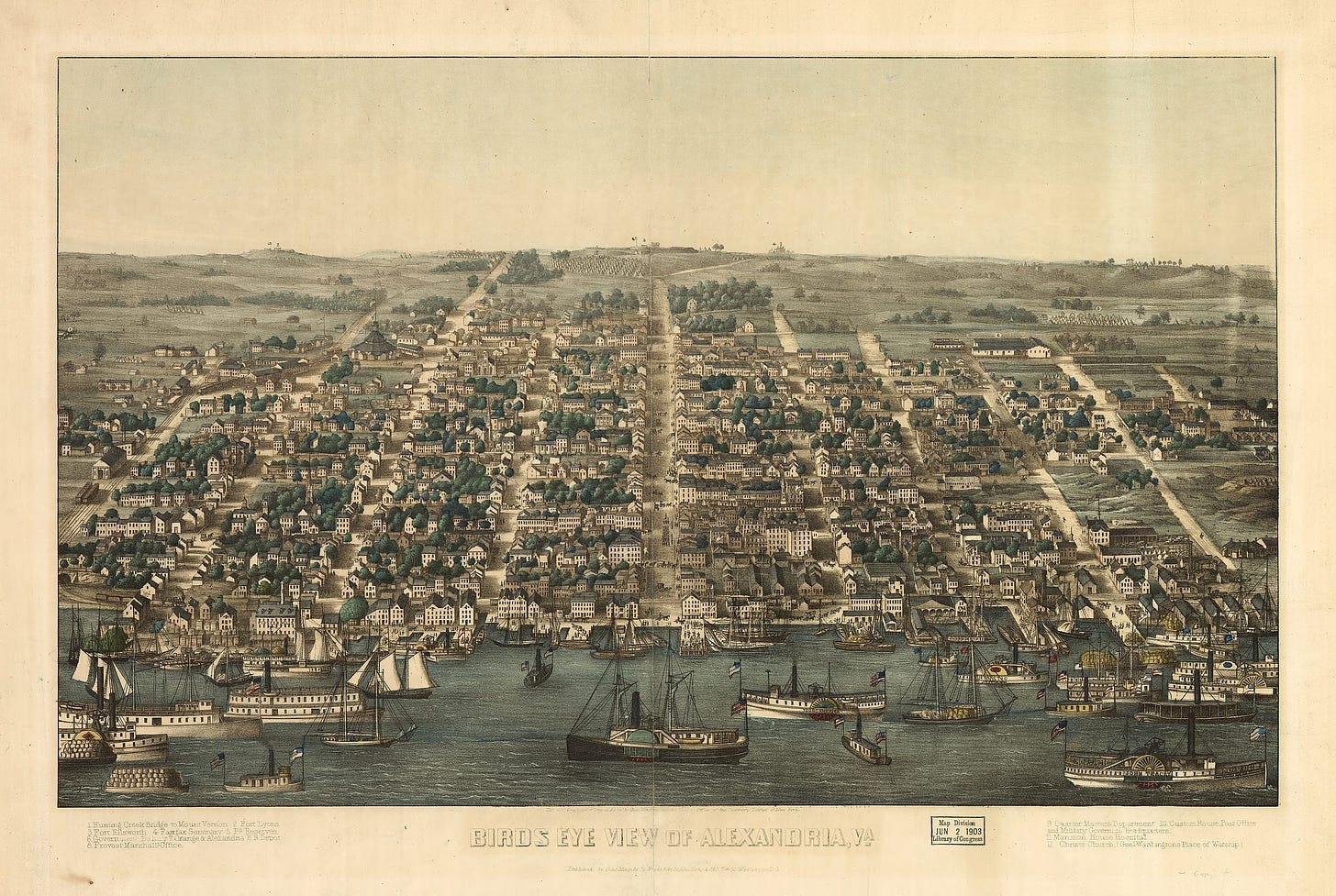Smart Cities At The Crossroads
Privacy, technology, convenience, and the battle to guard our humanity
A transformation both silent and profound is underway in our modern urban landscapes. The cityscape, characterized by its concrete canyons and vehicle congestion, is evolving into a new entity–the smart city. These urban enclaves, illuminated by advanced technologies, contain a tempting promise: convenience, efficiency, and sustainability. Yet we must not overlook the digital challenges that come with the benefits of the smart city revolution; with technology’s convenience, comes surveillance capitalism.
A View of London, Westminster and Southwark, Anthony van den Wyngaerde, 1543, engraved by Nathaniel Whitlock, 1849, Maps of Old London. Bodlean Library/Wikimedia.
Smart cities’ digital cocoons offer an incredible proposition: data-driven technology’s enhancement of urban existence. They pledge the alleviation of traffic through intelligent traffic management systems, the purification of city air by eco-friendly policies, and an array of responsive public services calibrated to citizens’ individual needs. The engines driving smart cities range from the Internet of Things to facial recognition systems.
Consider the future Barcelona, where sensors embedded in the asphalt monitor the flow of vehicle traffic in real time, managing green lights to limit congestion. These sorts of initiatives will resonate across the globe, as cities such as Singapore and San Francisco compete to lead urban innovation.
The allure of efficiency and convenience is undeniable. The capacity to locate parking spots with the ease of a click; to have an efficient public transportation system, or to have access to clean air.
Woodcut of Budapest, the Nuremberg Chronicle, Michel Wolgemut, Wilhelm Pleydenwurff, 1493. Wikimedia.
The seemingly wondrous convenience masks a dangerous challenge, however: surveillance capitalism. In the book that coined the term, Professor Shoshana Zubov defines this as the systemic modification and exploitation of personal and private data for profit. Every time we use a smartphone app to decide where to park or consult public transport schedules, we are unwittingly sharing our personal data. Each encounter with a facial recognition camera on our city streets marks our physical presence in a certain place and at a certain time. These seemingly harmless data points are like a spider's web when woven together, providing a detailed picture of our movements, our habits, and our social engagements.
Here’s where concerns for privacy, an essential public good, emerge, casting shadows upon the smart city's positive narrative. The web of data-driven surveillance and convenience that characterizes these new urban environments feeds on privacy; the convenience these cities promise demands the surrender of personal data.
Consider a scenario where an individual’s daily routine, meal preferences, and even emotional state are evident in their digital trail. This is the future of smart cities, whose proponents often dismiss the erosion of privacy as inevitable collateral in the pursuit of convenience. Paradoxically, the very technology that augments our lives threatens to expose the most intimate parts of our thoughts, feelings, ideas–ourselves.
Birds Eye View of Alexandria, Va., Charles Magnus, 1863. Library of Congress.
The ethics of smart cities, then, are delicate to balance. Smart city advocates contend that a degree of data collection is necessary for urban progress and the optimization of services. They praise the data-driven framework for transforming cities into efficient, secure, and sustainable places to live. Privacy champions, on the other hand, highlight the necessity for transparency and robust safeguards. They insist upon the citizens’ ownership of their data, advocating for clear consent mechanisms and the capacity to opt out of (or into) data collection. Striking a balance between the convenience promised by smart cities and the sanctity of personal privacy remains a real challenge.
Finding an equilibrium will require a mix of policy and governance. While some cities have proactively embraced measures to shield citizen data, no universal rules exist. Policymakers often cannot properly define the parameters of data collection, storage, and utilization within the smart city framework. Transparency in data practices, improvement of data encryption, and the establishment of independent oversight entities should be considered. Better standards and policies will be crucial to ensuring smart cities’ benefits do not put too much pressure on privacy and liberty.
A view Amsterdam from the river, Frederik de Wit, Accurately Delineated Ichnographic Plans of All the Cities and Towns in the 17 Provinces of the Netherlands, 1699-1706. Library of Congress/Wikimedia.
The future of smart cities lies at the juncture of convenience and privacy. Technology promises even more convenience in the coming years, but with it comes still more surveillance capitalism. Smart cities are coming, but it remains critical that while we develop them we jealously protect the individual privacy so essential to ensuring we remain human.







